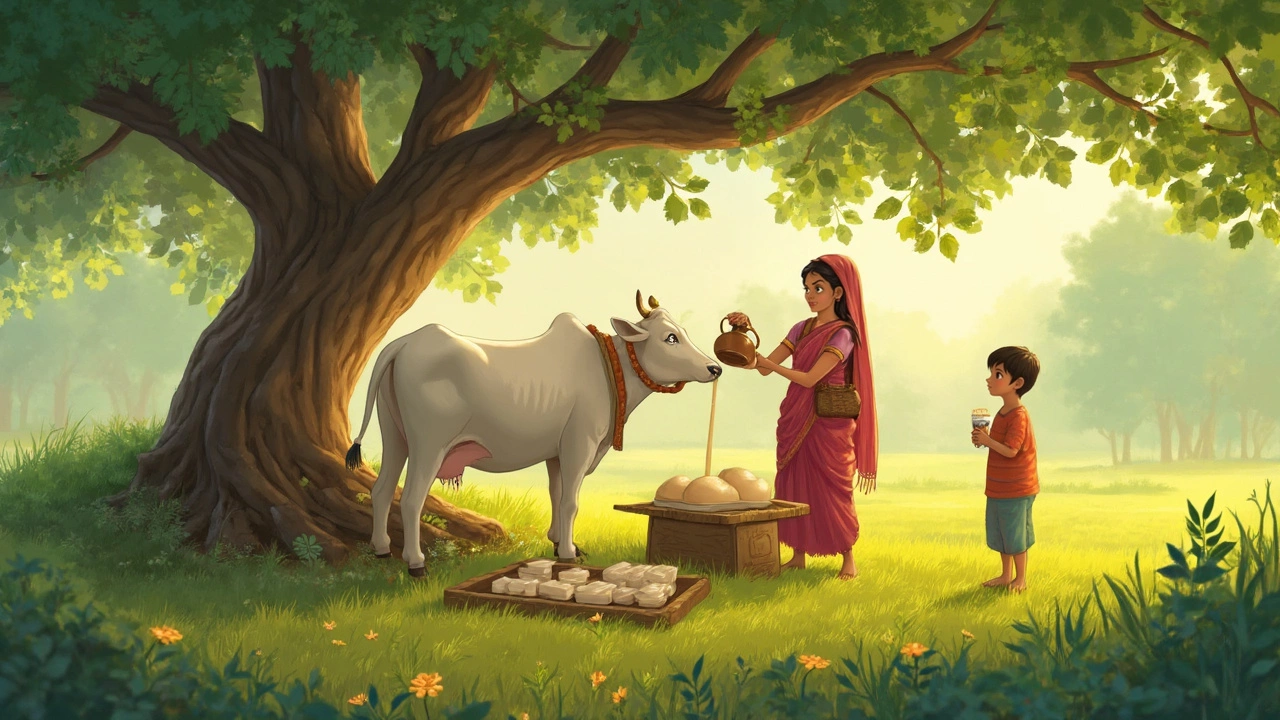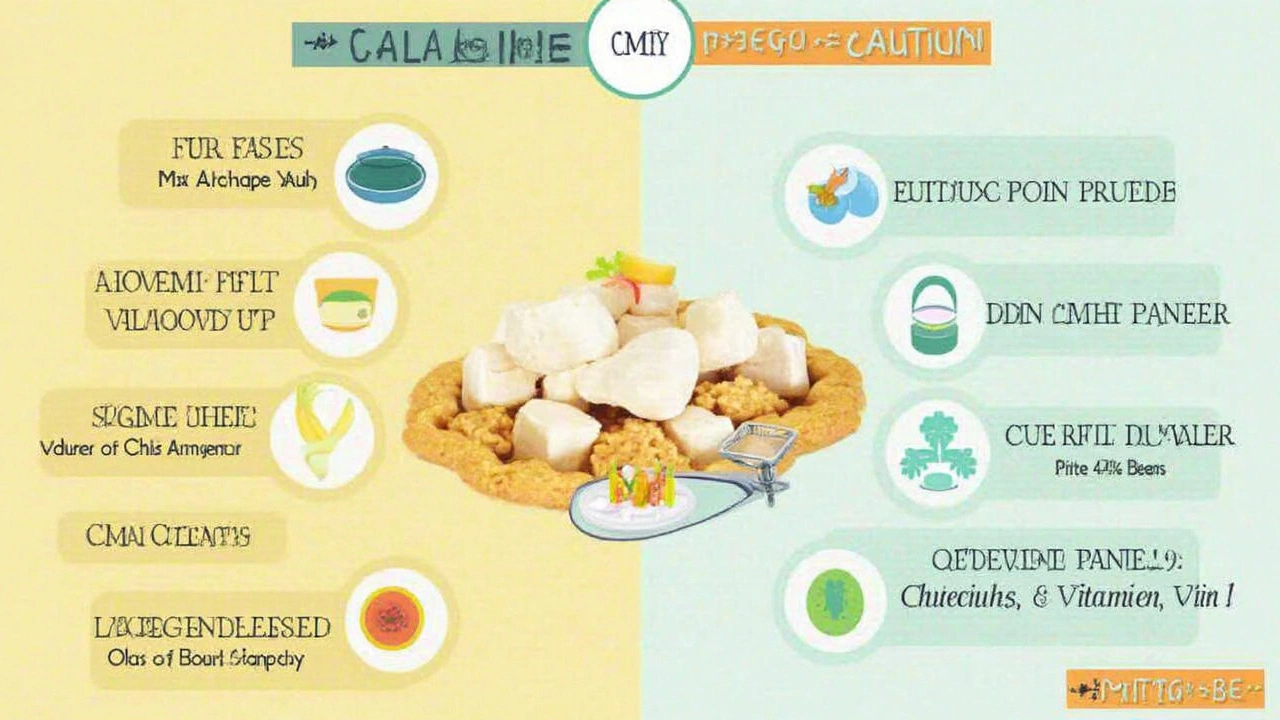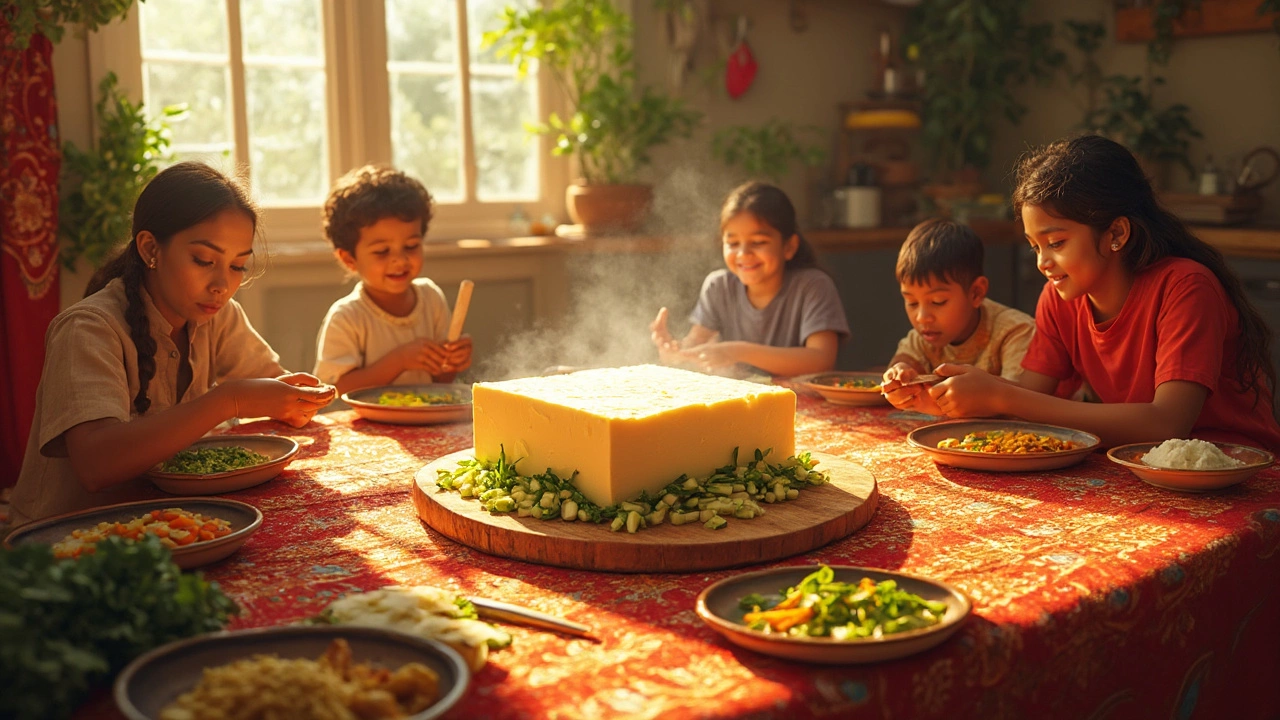Thinking about eating paneer every day? You're not alone! This popular, creamy cheese is beloved for its versatility and taste. But before you dive into daily paneer meals, let’s break it down.
First off, paneer is packed with protein, making it a great addition to any diet. But like everything else, it’s all about balance. A typical serving size provides a good amount of calcium and protein, which are essential for bone health and muscle growth.
But can you eat it every day? Well, the answer isn’t a straightforward yes or no. It really depends on factors like your overall diet, health conditions, and fitness goals. If you're not watching your fat intake, paneer could fit well into your meals since it's relatively low in carbohydrates while providing a good amount of energy.
On the flip side, too much paneer might not be great due to its fat content, especially if you're looking to maintain or lose weight. That’s why it's key to know how much is right for you.
- What's in Paneer?
- Benefits of Eating Paneer
- Daily Consumption: How Much is Too Much?
- Potential Downsides to Consider
- Tips for Making Homemade Paneer
What's in Paneer?
Paneer, a staple in many households, is more than just a block of white cheese. Its simple composition belies a treasure trove of nutrients that can make a world of difference in your diet. So, what's in it?
1. Protein Powerhouse
Packed with protein, paneer is a favorite among those looking to build muscle or simply keep their diet protein-rich. A serving of 100 grams provides around 18 grams of protein, which is more than a few eggs!
2. Calcium and Bone Health
Calcium is another big player in paneer. It’s essential for maintaining bone health, which is why paneer is a go-to for many vegetarians looking to meet their calcium needs without supplements. Just one serving can contribute significantly to your daily calcium intake.
3. Essential Fats
While paneer contains fat, not all fats are bad. Paneer contains healthy fats, including those necessary for brain function. But of course, moderation is key, especially if you're watching your weight.
4. Digestible Carbs
Paneer is low in carbohydrates, which is great news if you're on a low-carb diet. It won't spike your blood sugar levels, making it a safe choice for those managing diabetes.
5. Vitamins and Minerals
Besides calcium, paneer offers a range of vitamins and minerals like vitamin D and B-complex vitamins, which are crucial for various body functions, from keeping your bones healthy to boosting energy levels.
| Nutrient | Amount per 100g |
|---|---|
| Calories | 265 kcal |
| Protein | 18g |
| Fat | 20g |
| Calcium | 208mg |
If you're making homemade paneer, you'll be glad to know it retains all these nutritional qualities, providing freshness and assurance of quality. Plus, you can control the thickness and texture to suit your dishes. Overall, understanding what makes up paneer helps you appreciate how valuable it can be to your diet!
Benefits of Eating Paneer
Packed with nutrients, paneer is more than just a tasty addition to your dish. It's a fantastic source of protein, especially for vegetarians who might struggle to get enough in their diet. A 100g serving of paneer provides around 18g of protein – not bad, right?
Protein isn't the only highlight. It's loaded with calcium, a mineral crucial for strong bones and teeth. Calcium in paneer helps in maintaining bone density, which is vital as we age. Young or old, everyone can benefit from a calcium boost.
Good for Heart Health
Panner contains healthy fats too. While too much saturated fat from some types of cheeses could be harmful, a moderate amount in paneer can actually support heart health. These fats can provide energy and aid in the absorption of fat-soluble vitamins like A, D, E, and K.
- Rich in protein, promoting muscle growth and repair
- High in calcium, supporting bone health
- Contains healthy fats for energy
- Low in carbohydrates, making it diet-friendly
Boosts Digestive Health
Paneer is not just about bones and muscles. It's easy to digest and contains casein protein, which helps in slow digestion, keeping you full longer. This can be particularly helpful if you're watching your weight or dealing with digestive issues.
Additionally, being a fresh, unaged cheese, it retains more of its nutrient content compared to aged varieties. So, every bite gives a greater nutritional return.
| Nutrient | Amount/100g |
|---|---|
| Protein | 18g |
| Calcium | 208mg |
| Fat | 20g |
| Carbohydrates | 1.2g |
Including paneer in your meals can be a tasty way to add some extra punch to your diet. Just remember, it's all about moderation. By pairing it with other balanced foods, you can enjoy the health benefits without overdoing it.

Daily Consumption: How Much is Too Much?
So, how much paneer is okay to munch on each day? Well, a lot hinges on your personal needs and dietary goals. Let’s get into the details.
Paneer is a rich source of protein, earning it a solid spot in many diets, especially vegetarian ones. But because it also contains fat, it’s important to be mindful of how much you’re consuming daily.
Understanding Portion Size
A standard serving of paneer is about 100 grams, which provides around 20 grams of protein and roughly 260 calories. For most people, a serving this size fits well within daily needs, especially if you're active and need the extra protein for muscle repair. But if weight loss is your goal, you might want to adjust your portion size accordingly.
Consider Your Overall Diet
If your diet is already high in fats from other sources, incorporating a big chunk of paneer daily might not be ideal. However, if you’re switching some other higher-fat foods for paneer, you might find a daily serving sits just fine with your health. Balance is key.
Health Factors to Keep in Mind
Those with cholesterol concerns might need to limit their intake. But for many, enjoying paneer a few times a week brings the benefits without overloading the diet with saturated fats.
| Age Group | Recommended Daily Protein | Suggested Paneer Portion |
|---|---|---|
| Adults (19-50 years) | 46-56 grams | 100 grams |
| Athletes | Up to 100 grams | 150-200 grams |
Listen to Your Body
Your body will usually tell you when enough is enough. Feel sluggish or heavy after eating paneer? Consider scaling back. Feel energized and satiated? You’re probably just right.
At the end of the day, including paneer in moderation can be part of a balanced diet. Just keep an eye on portion sizes and how it fits into your daily calorie and nutrient intake.
Potential Downsides to Consider
While paneer is delicious and nutritious, it's important to be aware of a few potential downsides before making it a part of your daily diet. Let’s take a closer look at what you might need to watch out for.
High in Fat
Packing a lot of energy into a small package, paneer is pretty high in fat. If you're trying to manage your weight, or if your cholesterol levels are a concern, you might want to control your portion sizes. Too much fat can lead to weight gain or heart-related issues down the road.
Lactose Sensitivity
Are you lactose intolerant? While some people with mild lactose intolerance might be able to handle small amounts, others might find paneer problematic. Pay attention to how your body reacts and adjust accordingly.
Potential Sodium Content
Homemade paneer is great because you control what goes in. But be mindful of the salt content if you're buying it from the store or making it at home. Excessive sodium isn't good for your blood pressure.
Protein Balance
While the protein content in paneer is a big plus, make sure you balance it with other proteins in your diet. Relying only on paneer could mean you're missing out on other important nutrients that diverse sources provide.
With any food, moderation is key. Enjoy your paneer, but keep these potential issues in mind to ensure it complements your overall dietary needs.

Tips for Making Homemade Paneer
If you love paneer but want to make it fresh, you're in the right place! Making homemade paneer isn't as daunting as it may seem. With a few simple steps, you'll enjoy fresh and creamy cheese right at home.
Gathering Ingredients
All you really need is milk and a souring agent like lemon juice or vinegar. Full-fat milk works best, giving you rich and soft paneer, perfect for everyday use.
Step-by-Step Guide
- Start by boiling 2 liters of full-fat milk in a large pot.
- As the milk comes to a boil, lower the heat and add 3-4 tablespoons of lemon juice or vinegar, stirring gently.
- You'll notice the milk curdling, separating into curds and whey. Turn off the heat when it's completely separated.
- Line a colander with cheesecloth and pour the curdled mixture through it, allowing the whey to drain.
- Rinse the curds under cold water to remove any lemony or vinegary taste.
- Gather the cloth's edges and squeeze out excess water. Press it with a heavy object for about 1-2 hours to set the paneer.
- Once firm, cut the paneer into cubes or rectangles, depending on your recipe.
Storage Tips
Keep your homemade paneer in an airtight container in the fridge. It stays fresh for about a week. If you make a larger batch, consider freezing portions to extend its shelf life.
Customizing Your Paneer
Want flavored paneer? Toss in some herbs or spices to the milk before curdling. Remember, making paneer at home isn't just about cost-saving—it's about getting creative!
Impress your family and friends with your paneer skills, adding a personal touch to your cooking. Enjoy the satisfaction of knowing you've made healthier, preservative-free cheese!
